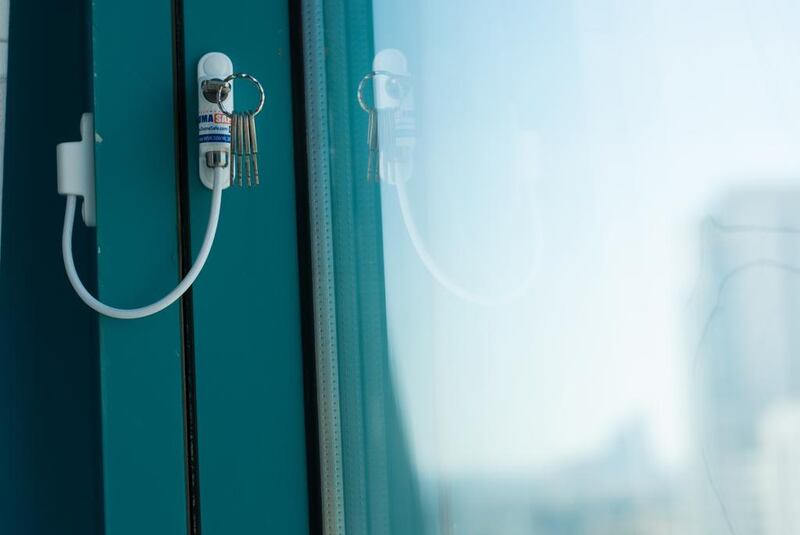ABU DHABI // A poster campaign in the city’s high-rises aims to drive home the danger of children playing near balconies or unguarded windows.
The municipality and police want all adults to be vigilant about the dangers of children falling from buildings in the targeted poster campaign.
They are planning to put posters in front of the lifts in tower blocks with information on how to contact authorities about problems in their homes that could result in children falling, said Abdulaziz Zurub, director of health, safety and environment at Abu Dhabi Municipality.
“We believe strongly that we will receive a lot of calls from these families to support them,” he said.
“In the future we will have, inshallah, zero kids falling down.”
A nine-year-old Syrian girl fell to her death from the eighth floor of her family's Hamdan Street apartment earlier this month. In Sharjah on Monday, police said a four-year-old boy had died after falling from a window.
But building codes and regulations are not enough, Mr Zurub said. Responsibility lies with families and others in the community.
“The main point here is that all parties have to work hard to avoid such occurrences,” he said.
The municipality does not have records of how many falls have taken place in recent years or whether they have decreased since new regulations were passed in 2012.
Figures on how many landlords have faced penalties for breaches of saftey rules were unavailable.
As recently as early this year, at least one company – Abu Dhabi Commercial Properties – was still installing locks in buildings to comply with the rules.
The city requires landlords who own residential buildings to instal safety measures, such as locks on windows that open more than 10 centimetres and are less than 1.5 metres above the floor. The devices used must abide by certain safety standards and should be in line with the relevant building codes or international equivalents.
Officials have carried out random inspections for this and other safety regulations with Abu Dhabi Civil Defence, said Eissa Al Mansoori, acting building permits director at the municipality.
“It’s not the only safety issue we’re facing,” Mr Al Mansoori said.
Mr Zurub said that during inspections authorities found parents had furniture beside the windows or had sliding doors a child could easily open.
“It’s not acceptable,” he said.
Dubai requires a 90cm railing on balconies, said Sultan Suwaidi, head of Dubai Municipality’s public safety section. In Sharjah, windows in new buildings must be at least 1.2m off the floor and older properties should have devices preventing them from opening more than 10cm.
Reshma Muhazil lives with her family in a building in Madinat Zayed that has sliding-glass windows about 1.1m from the floor.
Ms Muhazil, 25, from Kolkata, said she became very scared about the safety of her 10-month-old daughter after she watched a YouTube video of a child falling from a high rise.
“I don’t let her close to the window at all,” she said. “I don’t open the window.”
Educators, officials and paediatricians should spread awareness about the risks, said Dr Taisser Atrak, head of the Mafraq Hospital paediatrics department, who has campaigned on child safety issues.
Health authorities in Abu Dhabi have made a home-safety brochure, he said, that should be available “in every clinic and every school and every high-rise building”.
“These aggressive campaigns will make a difference,” he said.
“No child should fall from any building, anywhere.”
lcarroll@thenational.ae





